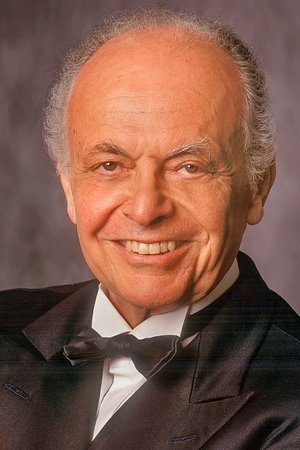Lorin Maazel (1930-2014)
Birthplace:
Neuilly-sur-Seine, Seine [now Hauts-de-Seine], France
Born:
March 6, 1930
Died:
July 13, 2014
Lorin Varencove Maazel ( March 6, 1930 – July 13, 2014) was an American conductor, violinist and composer. He began conducting at the age of eight and by 1953 had decided to pursue a career in music. He had established a reputation in the concert halls of Europe by 1960 but, by comparison, his career in the U.S. progressed far more slowly. He served as music director of The Cleveland Orchestra, Orchestre National de France, Pittsburgh Symphony Orchestra, Bavarian Radio Symphony Orchestra, and the New York Philharmonic, among other posts. Maazel was well-regarded in baton technique and possessed a photographic memory for scores. Described as mercurial and forbidding in rehearsal, he mellowed in old age. Maazel was born to American parents of Russian Jewish origin in Neuilly-sur-Seine, France. His grandfather Isaac Maazel (1873-1925), born in Poltava, Ukraine, then in the Russian Empire, for two decades was the first violinist in the Metropolitan Opera; he and his wife Esther Glazer (1879-1921), originally from Kharkiv, Ukraine, then in the Russian Empire, came to America in 1900 after the birth of their eldest son Marvin (1899-1988), who later became a pianist and composer. Maazel was brought up in the United States, primarily at his parents' home in the city of Pittsburgh's Oakland neighborhood. His father, Lincoln Maazel (1903–2009), was a singer, teacher of voice and piano, and an actor (he co-starred in George A. Romero's 1978 horror movie Martin); and his mother, Marion "Marie" Shulman Maazel (1894–1992), founded the Pittsburgh Youth Symphony Orchestra. His grandfather Isaac was a violinist in the Metropolitan Opera Orchestra for twenty years. Maazel was a child prodigy and had perfect pitch. He had his first conducting lesson at age seven with Vladimir Bakaleinikov, making his debut at age eight, conducting the University of Idaho Orchestra in Schubert's "Unfinished" Symphony in Los Angeles in 1938. In the same year, he conducted the National High School Orchestra at the National Music Camp in Interlochen, Michigan. The following year, he conducted 11 concerts by the same orchestra at the New York World’s Fair. At the age of eleven, he guest-conducted the NBC Symphony Orchestra on the radio. At twelve he toured the United States to conduct major orchestras. He made his violin debut at the age of fifteen. He attended the Fanny Edel Falk Laboratory School at the University of Pittsburgh as a child, followed by Peabody High School and the University of Pittsburgh. Maazel studied briefly with Pierre Monteux in 1945. In the early 1950s, Maazel toured as the conductor with the Gershwin Concert Orchestra. The orchestra consisted of 25 members and a noted array of soloists. The orchestra was organized in cooperation with Ira Gershwin, to give the public a comprehensive Gershwin program. The list of soloists included George Gershwin's friend, Jesús María Sanromá, Carolyn Long and Theodor Uppman. In 1960, Maazel became the first American to conduct at the Bayreuth Festspielhaus. He was chief conductor of the Deutsche Oper Berlin from 1965 to 1971 and the Radio-Symphonie-Orchester (RSO) Berlin from 1964 to 1975. ... Source: Article "Lorin Maazel" from Wikipedia in English, licensed under CC-BY-SA 3.0.





